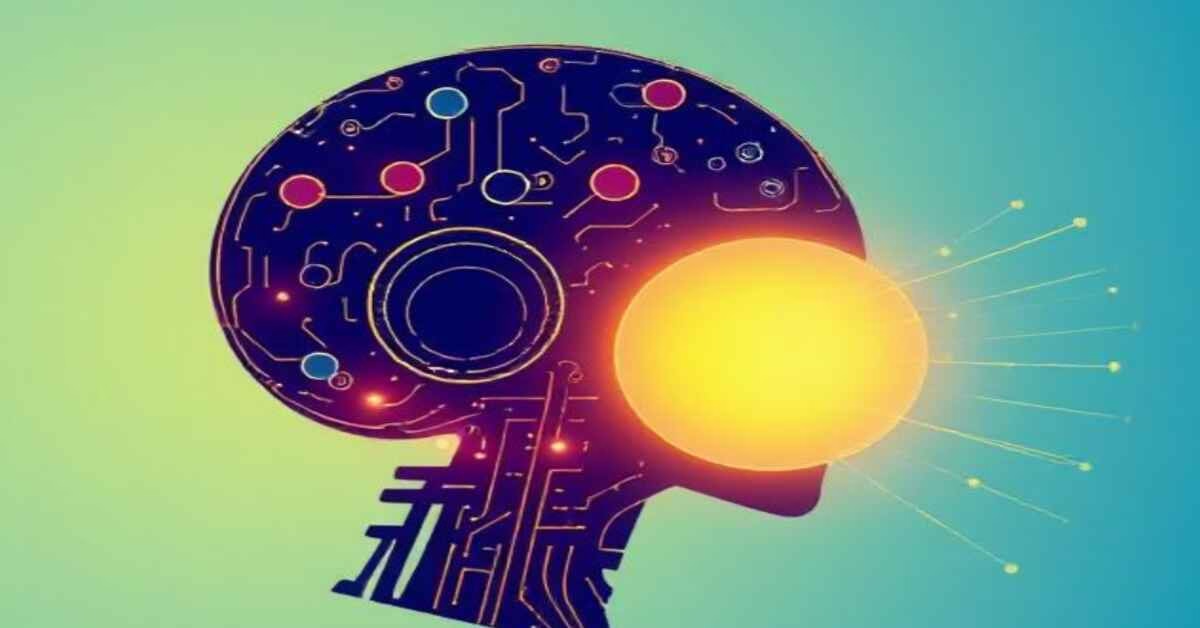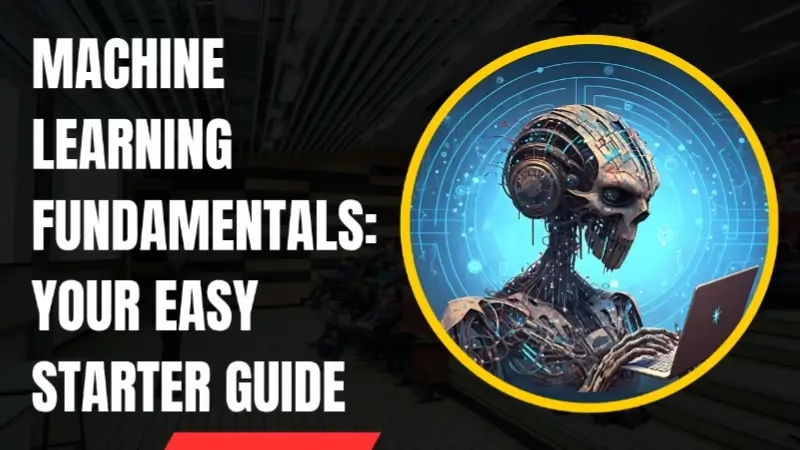Learn AI Without a Coding Background – Your Ultimate Guide
How to Learn AI Without a Coding Background – A Beginner’s Guide
Learn AI Without a Coding Background – Empower Your Future
Discover how to learn AI without a coding background with our comprehensive guide. Explore accessible resources, courses, and practical tips to master AI concepts easily.
Artificial Intelligence (AI) is rapidly transforming the world, driving innovations across industries from healthcare to finance. Many people assume that to delve into AI, you must first master complex programming languages.
However, you can learn AI without a coding background by leveraging accessible resources, interactive tools, and non-technical courses.
This guide will help you understand AI fundamentals, explore practical learning methods, and build the confidence to engage with AI concepts—even if you’ve never written a line of code.
1. Understanding the Basics of AI
1.1 What is Artificial Intelligence?
Artificial Intelligence involves the simulation of human intelligence in machines that can learn, reason, and solve problems. Core areas include:
Machine Learning: Algorithms that learn from data.
Natural Language Processing: Understanding and generating human language.
Computer Vision: Interpreting visual information.
Robotics: Automating physical tasks.
Grasping these concepts can be achieved through visual explanations and interactive content rather than just code-based tutorials.
1.2 The Importance of Non-Coding Skills in AI
Non-coding skills like critical thinking, statistical analysis, and data interpretation are essential for understanding AI. Many AI applications rely on these skills, making it possible to participate in AI projects and discussions without deep programming expertise.
Supporting Keyword: AI Fundamentals
External Resource: For an introduction to AI concepts, explore IBM’s What is AI?.
2. How to Learn AI Without a Coding Background
2.1 Enroll in Beginner-Friendly AI Courses
Numerous online platforms offer AI courses tailored for non-coders. These courses focus on the theoretical aspects of AI, its applications, and ethical considerations without requiring prior programming experience.
Recommended Course: “AI For Everyone” by Andrew Ng on Coursera is highly acclaimed for its accessible approach.
External Resource: Coursera – AI For Everyone
2.2 Utilize Interactive Tools and Simulations
Interactive tools help you learn AI concepts through hands-on experimentation. Platforms like Google’s Teachable Machine allow you to create simple machine learning models by uploading data and watching how the model reacts. These tools provide a visual, intuitive understanding of AI processes.
Supporting Keyword: Interactive AI Learning
2.3 Leverage Books and Video Tutorials
Books and video tutorials simplify AI concepts with engaging visuals and real-world examples. They are an excellent way to learn at your own pace without getting overwhelmed by technical jargon.
Recommended Read: “Artificial Intelligence: A Guide for Thinking Humans” by Melanie Mitchell.
Video Resource: YouTube channels such as “Two Minute Papers” and “3Blue1Brown” offer insightful explanations and visualizations on AI topics.
External Resource: YouTube – Two Minute Papers
2.4 Join AI Communities and Forums
Engaging with AI communities can significantly enhance your learning process. Platforms like Reddit’s r/MachineLearning and LinkedIn groups provide forums where you can ask questions, share insights, and connect with experts.
These communities often discuss the latest trends, research, and applications in AI, offering a broader perspective on the field.
Supporting Keyword: AI Community Engagement
Learn more: Reddit – r/MachineLearning
3. Developing a Strong AI Mindset
3.1 Embrace Curiosity and Lifelong Learning
Entering the world of AI is about more than just absorbing facts; it’s about cultivating a mindset of inquiry and continuous learning. Focus on understanding how AI impacts everyday life and explore its ethical and societal implications. This broader perspective can help you appreciate the potential of AI beyond technical details.
3.2 Stay Updated with Industry Trends
The field of AI evolves rapidly. Follow industry blogs, podcasts, and news sites to keep up with the latest developments and applications. This ongoing education will ensure that you remain informed about breakthroughs, research advancements, and emerging trends.
Supporting Keyword: AI Trends and News
External Resource: MIT Technology Review – AI
3.3 Network with Experts
Networking is key to expanding your understanding and finding mentorship. Attend webinars, virtual conferences, and local meetups related to AI. Engaging with experts can provide deeper insights into AI applications and open up opportunities for collaborative projects.
4. Transitioning from Theory to Practice
4.1 Start with No-Code or Low-Code Platforms
No-code and low-code platforms allow you to experiment with AI models without writing extensive code. Tools like Microsoft’s Power Platform or Google’s AutoML enable you to build, test, and deploy AI models using intuitive interfaces.
Supporting Keyword: Practical AI Projects
4.2 Collaborate with Technical Experts
If you have innovative ideas but lack technical coding skills, consider partnering with developers who can help implement your vision.
Collaboration bridges the gap between conceptual knowledge and practical application, allowing you to contribute your expertise while learning from technical partners.
Supporting Keyword: Collaborative Learning
4.3 Experiment and Learn from Projects
Engage in small projects that allow you to apply what you’ve learned. Whether it’s analyzing datasets, exploring natural language processing, or creating simple predictive models, practical application reinforces your understanding and builds confidence in AI.

5. Conclusion: Empower Your Future with AI Knowledge
Learning AI without a coding background is both achievable and rewarding. By leveraging non-technical courses, interactive tools, insightful books, and vibrant communities, you can build a solid foundation in AI concepts.
Embrace a mindset of continuous learning, stay updated on industry trends, and don’t hesitate to collaborate with experts. These strategies will empower you to understand and apply AI effectively, regardless of your technical background.
Whether you’re aiming to influence business strategy, drive innovation, or simply expand your knowledge, these practical steps will set you on the path to success in the dynamic world of artificial intelligence.
Frequently Asked Questions – Learn AI Without a Coding Background
Q1: What does “learn AI without a coding background” mean?
It means acquiring knowledge and understanding of artificial intelligence concepts without the need to write or understand complex programming code. This approach focuses on the theoretical, practical, and ethical aspects of AI, making the field accessible to non-programmers.
Q2: Can I really learn AI without any coding experience?
Yes, you can. Many online courses, interactive tools, and resources are specifically designed for beginners who have little or no coding experience. These resources emphasize core AI concepts, real-world applications, and industry trends without requiring technical programming skills.
Q3: What are some recommended courses for non-coders interested in AI?
A popular course is “AI For Everyone” by Andrew Ng on Coursera. This course explains AI fundamentals, its impact on various industries, and how AI can be leveraged without delving into code. Other platforms like edX and Udacity also offer beginner-friendly courses.
Q4: Which interactive tools can help me understand AI concepts?
Interactive tools like Google’s Teachable Machine allow you to experiment with machine learning models using simple drag-and-drop interfaces. These tools provide visual feedback and help you understand how AI systems work without requiring you to write code.
Q5: Are there books available that explain AI for non-technical learners?
Yes, many books explain AI in simple terms. For example, “Artificial Intelligence: A Guide for Thinking Humans” by Melanie Mitchell offers a clear, accessible overview of AI concepts and their implications for society, making it ideal for non-coders.
Q6: How can joining online communities benefit me in learning AI?
Online communities, such as Reddit’s r/MachineLearning and LinkedIn groups, allow you to engage with experts and peers. These platforms provide a space to ask questions, share experiences, and learn from others who are also exploring AI without a coding background.
Q7: What are some practical applications of AI that non-coders can explore?
Non-coders can explore applications like data analysis, natural language processing, and AI-driven decision-making. Tools and platforms that offer no-code or low-code environments allow you to build and test AI models, even if you’re not a programmer.
Q8: Do I need a strong background in math or statistics to learn AI?
While a basic understanding of math and statistics can be helpful, many resources are tailored for beginners and explain these concepts in simple language. Courses and tutorials often start with foundational concepts, so you can gradually build your knowledge as you learn about AI.
Q9: How do I stay updated with the latest trends in AI without coding?
Following industry blogs, podcasts, and news sites such as MIT Technology Review, AI Trends, and TechCrunch can help you stay informed. These sources provide insights into new developments, ethical considerations, and real-world applications of AI that are accessible to non-technical audiences.
Q10: What steps should I take to begin my journey in AI today?
Start by enrolling in a beginner-friendly course like “AI For Everyone.” Explore interactive tools, read accessible AI books, and join online communities to deepen your understanding. By combining these resources, you can build a solid foundation in AI concepts and gradually transition to more advanced topics without needing extensive coding skills.
Call to Action:
Ready to embark on your AI journey without coding? Start today by enrolling in a beginner-friendly course, exploring interactive tools, and joining AI communities.
Share this guide with fellow learners and subscribe for more insights on accessible AI education. Empower your future by unlocking the potential of artificial intelligence—no coding required!
For further exploration, visit Coursera – AI For Everyone and MIT Technology Review – AI. Happy learning!


